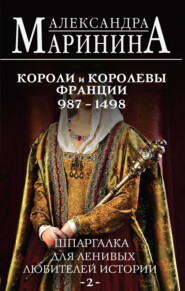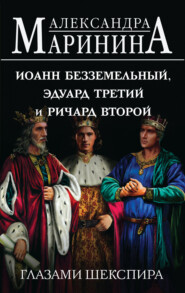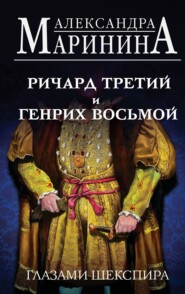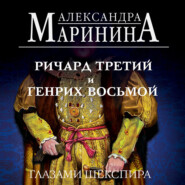По всем вопросам обращайтесь на: info@litportal.ru
(©) 2003-2025.
✖
The Stylist
Настройки чтения
Размер шрифта
Высота строк
Поля
“What did you say?” She laughed. “I never heard that expression. Is that a proverb?”
He smiled, as he went on mixing the meatloaf ingredients.
“At college we used to transform traditional sayings and proverbs. We even had competitions. For instance, ‘Don’t spit in the well, it won’t learn new tricks.’”
“Cute. Any others?”
“Wednesday’s child fell on its face.”
It took Nastya a second to remember the verse: “Wednesday’s child is full of grace.”
“I like it!”
She could see Andrei pushing the wheelchair with Vladimir on the other side of the road. Yakimov had his back to the window, and didn’t see them, so if she needed to, she could pretend not to have noticed and go on asking the father of the three sweet children about the residents of the cottages. But Nastya decided not to push it. All in good time.
“There they are,” she said, getting up. “Thanks for taking me in, Zhenya.”
* * *
She could not tell whether or not Solovyov was pleased by her arrival. But it was quite clear that his assistant Andrei definitely did not like it. Naturally, the young man did not say or do anything hostile, but Nastya could feel his displeasure the way young brides feel the dislike of even very polite and friendly mothers-in-law.
After the first visit to her former lover, Nastya tried to learn what disaster had befallen him, but she could not find out in two days. It was not the result of criminal violence: all information on murders and serious bodily harm in the Moscow region ended up on her desk and from there into various reports, tables, files, and eventually her home computer. She would not have missed the name Solovyov, even if she had wanted to. Her memory was always good, and she would certainly remember Volodya Solovyov as long as she lived. He had left too painful a mark to forget. Well then, his legs must have lost their mobility as the result of some illness. Could the illness be related to the death of his wife, Svetlana? What did she die of? As far as Nastya knew, Vladimir and his wife were the same age, and therefore, she had died quite young, still in her thirties.
“You promised to come on Saturday,” Solovyov noted. “Have you become irresponsible?”
“I warned you that I had changed. I guess in some ways, for the worse. Did you wait for me?”
“I did.”
He smiled so warmly and tenderly that for a second she forgot all about everything else.
“Your boy doesn’t seem to share your feelings,” she said evasively. “Do you think he’s jealous?”
“What does he have to be jealous about?” Solovyov said in amazement. “He’s not a son who gets upset when his widowed father brings home a new woman.”
“He’s not a son,” Nastya thought. “But he could be homosexual. Just as you could be, my once passionately beloved Solovyov.” But out loud she said something completely different.
“You know, when a man does woman’s work, he develops a woman’s psychology. Your Andrei feels like the lady of the house, he cooks and cleans and takes care of you, and suddenly some female shows up. She tracks in dirt, keeps you from your work, and he has to serve her coffee, yet.”
“Don’t be silly,” Solovyov shrugged off the idea. “Why don’t you tell me about yourself instead. How have you lived all these years, what have you been doing.”
“That’s not interesting. I had a boring life, did the same old things, and in breaks moonlighted as a translator. How about you?”
“I…” He laughed strangely. “I led a frustrated life.”
“What do you mean?”
“My life could have been completely different, but as a result became what it is.”
“As a result of what?”
“Various events. I planned to move abroad twice, and twice I couldn’t do it. There’s a bad sign hanging over me. As a result I became an invalid and now I most certainly will never leave Moscow, much less Russia.”
“And how did it happen? Did something stop you?” “Something?” he repeated sarcastically. “Fate. Fate stopped me. I wanted to get a divorce, marry another woman, and leave with her. Just then Svetlana died, and I could not leave my son here alone. The woman left as she had planned, and I remained.”
“And the second time?”
“The second… My legs let me down. Where could I go in this condition?”
Nastya saw that he did not want to get into detail. All right, she could find out what she needed without him. But it was strange that he didn’t want to share with her. As far as she knew Solovyov, he had always enjoyed whining and complaining, telling how miserable he was in great detail and how he had been hurt. He had always needed sympathy. Of course, that was twelve years ago. He was different now. As was she.
“What did you tell your husband when you came here?” Solovyov abruptly changed the subject.
“Some lie. It doesn’t matter. He knows that I’m busy for days at a time with work and he docs not try to control my time.”
“You mean he’s not the jealous type?”
“Absolutely not,” Nastya lied without blinking an eye.
Poor Lyoshka! He was going crazy with jealousy, despite all her assurances and explanations. She was being forced to make him suffer so that she could solve the mystery of the missing teenagers. Was the answer worth his pain? Was there anything at all in the world worth hurting the person she loved most? Of course, Lyoshka would never say another word to her about it, and he would be angry and upset in silence. But did that make it any easier?
Nastya spent almost two hours with Solovyov. They talked, dined, reminisced about old friends, studiously avoiding topics that touched on their old relationship and possible relations today. Nastya noticed the assistant’s wary looks, but tried to pay no attention. They parted amicably.
She got home late and rushed to call her mother.
“Mama, do you remember your graduate student Volodya Solovyov?”
Nadezhda’s voice grew cold and tense. She knew all about their affair.
“I remember. But not as well as you do,” she replied coolly.
“All right, all right, mother,” Nastya said with a laugh. “It’s not my fault that I have such a good memory, I don’t forget anything.”
“In what connection has he come up?” her mother persisted.
“I ran into him in connection with work. It turns out his wife recently died and he is an invalid now, unable to walk. Have you heard anything about it?”
“No.”
“Could you find out? He’s in your field, a linguist. Surely one of your colleagues must know the story. ”
“Why don’t you ask him yourself?”
“I tried, but he’s avoiding an answer. I don’t want to push him. Come on, Mother.”
“All right,” Nadezhda said. “I’ll try to find out. Has he been up to something?”
“No, not at all! What could Solovyov be up to? Before taking a step, he thinks for a century or so, and then doesn’t do anything. It’s just that I need the details so that I act accordingly. Otherwise I might say something that will upset him, and we won’t make contact.”

















